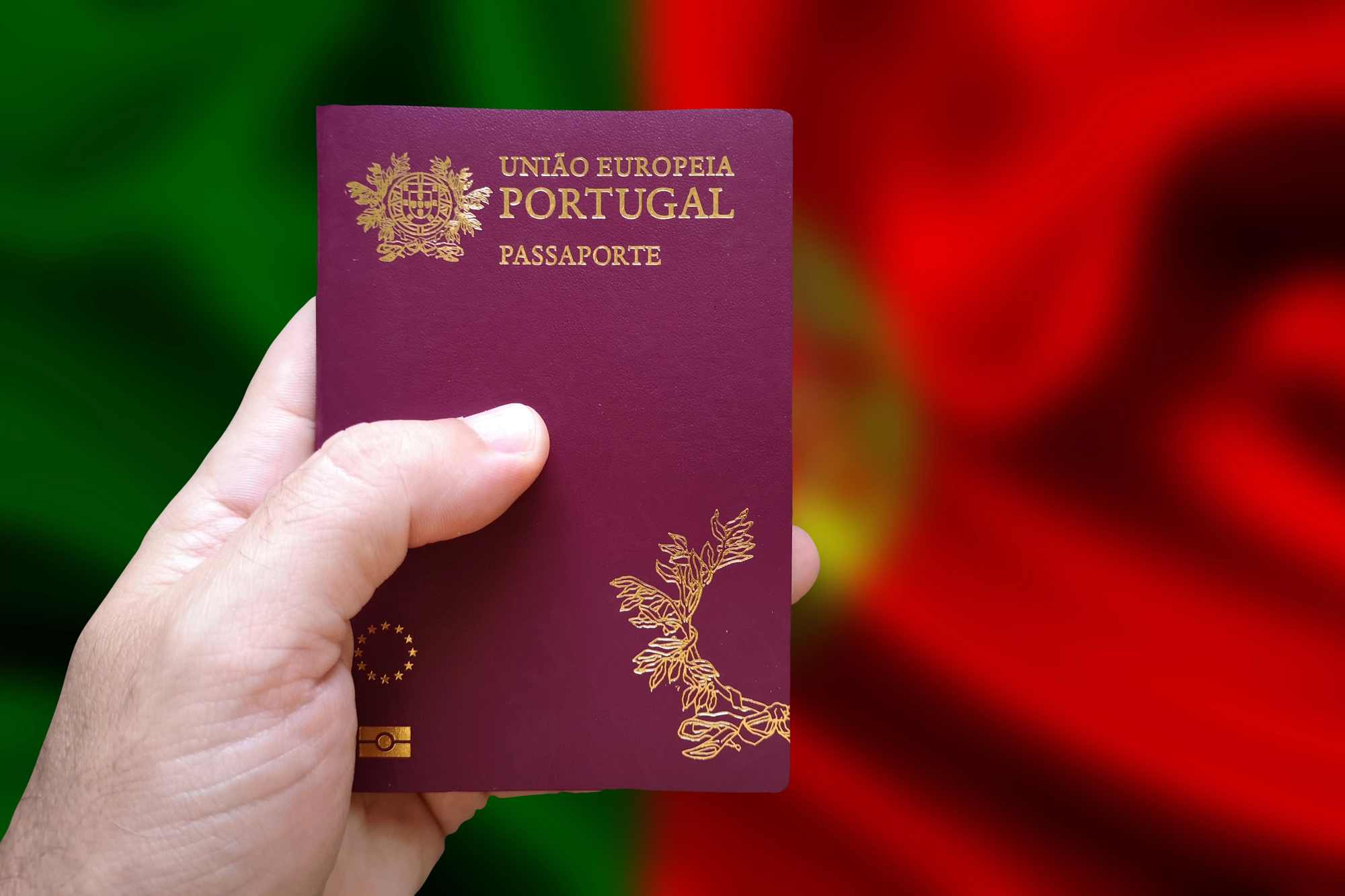Table of Contents
Many people tracing their family tree back to Portugal ask the same question: “Can I get Portuguese citizenship through my great-grandparent?”
The short answer? Not directly.
The Current Law: You Can Only Go Back as Far as Grandparents
Under Portuguese law, citizenship by descent is currently only available up to the grandparent level. If you have a Portuguese parent, the process is relatively straightforward as you don’t need to show language skills or ties to the Portuguese community. If your link is through a grandparent, it’s still possible — but the bar is higher.
Unfortunately, great-grandparents don’t count — at least, not on their own.

Get Our Book For Free
Psst!
For a very limited time, we're giving away free copies of our best-selling book for free.
That right...the one with 400+ reviews on Amazon.
Grab it here.
But there’s a workaround.
A Workaround: The Two-Step Process
If your grandparent or parent is still alive, they may be able to apply for Portuguese citizenship first. Once they’re a citizen, you can apply through them.
It’s a longer process — expect around 2 years for their application, and around another 2 years for yours — but for many, it’s the most viable path.
And yes, in theory, the same applies to a great-great grandparent, but that would require every generation in between to apply successfully and still be living. In practice, this route is rare, complicated, and time-consuming.
Citizenship Through Grandparents: More Requirements, More Effort
If you’re applying directly through a grandparent, you’ll need to prove more than just a bloodline.
One of the biggest hurdles? Portuguese language proficiency. You’ll need to pass an A2-level exam (CIPLE), showing basic conversational ability. That means reading, writing, listening, and speaking Portuguese.
Many people underestimate this requirement — or leave it too late. Language exams can get booked up months in advance, so it’s best to plan early and start studying well before applying.
Processing Times: It’s Not a Quick Win
Even once your paperwork is submitted, citizenship applications can take up to 2 years — sometimes longer. So if you’re thinking of doing this in stages (e.g. parent applies, then you apply), plan for at least 4–5 years from start to finish.
Relation |
Can You Apply Directly? |
Language Requirement |
“Ties to Portugal” Requirement |
Estimated Processing Time |
Other Notes |
|---|---|---|---|---|---|
Parent |
✅ Yes |
❌ No |
❌ No |
12–36 months |
Easiest and fastest route. Proof of descent usually sufficient. |
Grandparent |
✅ Yes |
✅ Yes (A2 level Portuguese) |
✅ Yes |
12–36 months |
More complex. Language exam required. Integration with Portuguese culture must be demonstrated. |
Great-Grandparent |
❌ No (Not directly) |
✅ Yes (if going via grandparent route) |
✅ Yes (if applying through grandparent) |
4–5 years total (2 years for grandparent, 2+ years for you) |
You must first help a parent or grandparent gain citizenship, then apply through them. Each person must be alive to apply. |
Language and Community Ties: What You Really Need to Know
If you’re applying for Portuguese citizenship through a grandparent, two additional requirements come into play: language proficiency and proof of connection to the Portuguese community.
The A2 Exam: Easier Than You Think
Let’s start with the language.
Yes, you’ll need to pass an A2-level Portuguese exam (usually the CIPLE), but don’t let that intimidate you. A2 is considered upper beginner. That means basic conversations, understanding simple texts, and expressing yourself on everyday topics like food, family, and travel. You don’t need to write essays or discuss philosophy.
With regular study — around 1–2 hours a day for 4 to 6 months — many people pass comfortably. Courses like Practice Portuguese, Italki lessons, or even local evening classes can help. Just keep in mind: exam dates fill up fast, so book early.
Proving Ties: Less Clear, More Critical
The second requirement — proving your effective connection to the Portuguese community — can be more ambiguous. It’s also increasingly important.

Get Our Book For Free
Psst!
For a very limited time, we're giving away free copies of our best-selling book for free.
That right...the one with 400+ reviews on Amazon.
Grab it here.
If you live in a city with a strong Portuguese presence — like New York, London, Toronto, or Paris — this can be relatively straightforward. Joining a Portuguese club, attending cultural events, or participating in community activities can help build your case.
But if you’re based somewhere without a visible Portuguese community, it becomes trickier. You’ll need to be creative and proactive.
Examples of Acceptable Ties
Here are some common ways applicants prove a connection:
- Living in Portugal
- Regular visits to Portugal
- Owning or renting property in Portugal (for 3+ years)
- Involvement in Portuguese community organisations abroad
- Participating in cultural or recreational associations
- Attending Portuguese classes or religious services
No single document is enough on its own. Think of this as building a case — the more proof you can provide, the stronger your application.
An Alternative Route: Move to Portugal
If your ultimate goal is to live in Europe — whether for quality of life, public healthcare, lower cost of living, or safety — you don’t necessarily need citizenship right away.
Instead, you could consider moving to Portugal first and applying for citizenship later via naturalization. There are several visa options that allow this:
- D7 Visa – for those with a passive income (e.g. pension, US Social Security, rental income)
- Digital Nomad Visa – for remote workers and freelancers
- Golden Visa – for investors (typically €500,000+)
- D2 Visa – for entrepreneurs and independent professionals
- Student Visa – for those enrolling in a Portuguese educational institution
- D1/D3 Visa – general and skilled employment visas allowing you to work at a Portuguese company
Once you have legal residency, you could apply for citizenship after ten years — or seven years for those from the EU or Portuguese-speaking countries. You can apply for permanent residency after just five years.

Get Our Book For Free
Psst!
For a very limited time, we're giving away free copies of our best-selling book for free.
That right...the one with 400+ reviews on Amazon.
Grab it here.
But That Five-Year Rule May Change…
The Portuguese government is currently discussing a proposal to increase the naturalization timeline from 5 years to 10 years. A decision is expected in September 2025.
If that passes, moving to Portugal and waiting it out will take longer — making the citizenship-by-descent route more appealing again, even with its own delays.
So… What’s the Best Option?
It depends on your goals.
- If you want a second passport and have a living parent or grandparent who could qualify, it might be worth starting the paperwork now.
- If you want to move to Europe, don’t wait. Residency gives you many of the same benefits as citizenship — public healthcare, safety, education access, and a lower cost of living — without the multi-year wait.
- If you’re looking at great-great-grandparent links, be aware that the law may change soon: Portugal is debating allowing citizenship via great-grandparents, but not beyond that. If passed, this would formalize the furthest generational link possible.
You also don’t have to go for one option. You can apply for residency and citizenship through descent simultaneously. If you’re thinking of moving to Portugal, you may even decide to wait until you’ve moved here – that way you will have a better chance of showing ties to the Portuguese community (needed for citizenship through grandparents) and
Portugalist Take: Think Strategically and Start Early
Portugal’s citizenship laws are among the more generous in Europe, but they’re also in flux. What’s possible today may not be tomorrow — and what’s impossible now might become an option in the near future.
So whether your link is through a parent, grandparent, or a multi-step ancestral chain, start gathering documents early. Learn Portuguese. And if you’re serious about making Portugal your home, don’t wait for the perfect route — get here and start building your life.

